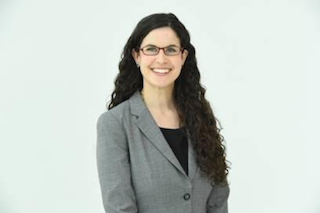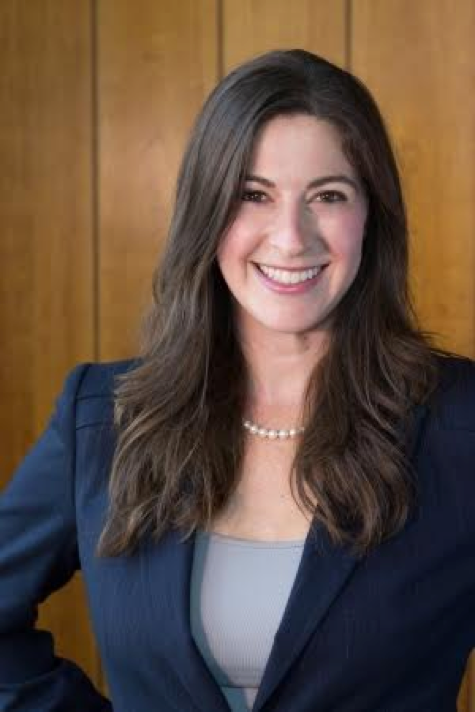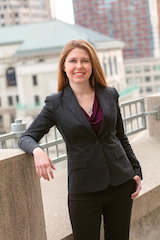2017 Intellectual Property Colloquium
The IP Colloquium explores doctrinal, theoretical, and policy issues in intellectual property law. Its primary aim is to provide students with an opportunity to hone their critical and analytical skills through deep engagement with leading legal scholarship in IP.
The Colloquium will expose students to a broad array of interdisciplinary scholarship across the various branches of this expansive and increasingly important area of law, and it will require them to engage in both written and oral analysis and critique of that scholarship. The Colloquium centers on biweekly presentations by outside scholars who are nationally recognized in their fields.
This year’s speakers are:
jacob sherkow | february 6, 2017
Jacob S. Sherkow is an Associate Professor of Law and affiliated faculty at the Innovation Center for Law and Technology at New York Law School, where he teaches a variety of courses related to intellectual property. His research focuses on how scientific developments, especially in the biosciences, affect patent law and litigation. Prof. Sherkow is the author of over two dozen articles on these and related topics in both traditional law reviews and scientific journals, including the Yale Law Journal, the Stanford Law Review, Science, and Nature. He has been a frequent commentator on patent matters in popular outlets such as the Wall Street Journal, The New York Times, the Los Angeles Times, and NPR. Prof. Sherkow also currently serves as a community representative on the New York Genome Center’s Institutional Biosafety Committee, and has advised a committee of France’s National Assembly on issues concerning the patenting of biotechnological research tools. Previously, Prof. Sherkow was a Fellow in the Center for Law and the Biosciences at Stanford Law School and a patent litigator at Gibson, Dunn & Crutcher in New York. He was also a law clerk in the U.S. District Court for the Eastern District of New York.
Prof. Sherkow graduated cum laude from the University of Michigan Law School, where he was an editor of the Michigan Law Review and was the recipient of the Fred L. Leckie and James N. Adler Scholarships. He also holds an M.A. in biotechnology from Columbia University and a B.Sc. from McGill University, where he majored in molecular biology and English literature. In addition to his legal training, Prof. Sherkow has several years of experience as a research scientist in molecular biology, is a certified Editor in the Life Sciences (BELS), and is an avid squash player.
Janet freilich | February 21, 2017
Professor Freilich graduated magna cum laude from Harvard Law School. Most recently, she served as Harvard Law's inaugural postdoctoral fellow in private law and intellectual property with the Program on the Foundations of Private Law. In 2010 she won the Samsung-Stanford Patent Prize and the Irving Oberman Memorial Award in Intellectual Property in 2012 for her writing in patent law. Prior to entering academia, she practiced at Covington & Burling LLP as a patent litigator and prosecutor. She graduated summa cum laude from Cornell University with a bachelor’s degree in molecular biology.
alexandra roberts | march 13, 2017
Alexandra J. Roberts is an Assistant Professor at the University of New Hampshire School of Law. She teaches and writes in the areas of trademarks and unfair competition, entertainment law, contracts, and law and literature. Her scholarship focuses on trademark use, distinctiveness, and defenses, particularly on social media. Her current projects include Tagmarks, forthcoming in California Law Review; “Athlete Trademarks,” forthcoming in The Oxford Handbook of American Sports Law; and Trademark Failure to Function, a work in progress on the Lanham Act’s “use as a mark” requirement and its relationship to trademark distinctiveness.
Professor Roberts holds an AB from Dartmouth College, an AM from Stanford University, and a JD from Yale Law School. She previously served as the Executive Director of the Franklin Pierce Center for Intellectual Property at UNH Law and as a Visiting Assistant Professor at Boston University School of Law. Prior to entering academia, she was an associate in the intellectual property litigation group at Ropes & Gray, first in its New York and then in its Boston office. Professor Roberts serves on the academic committee of the International Trademark Association and co-chairs the Professor Membership Subcommittee. She is an Affiliated Fellow at the Yale Information Society Project. She tweets about trademarks and entertainment law @lexlanham.
Christina Mulligan | March 27, 2017
Professor Mulligan's scholarship addresses intellectual property, property, and the relationship between law and technology. Her research seeks to better adapt intellectual property law for the digital age. Professor Mulligan joined the Brooklyn Law School faculty from University of Georgia Law, where she taught from 2013 to 2014. Previously, she served as a postdoctoral associate and lecturer in law for the Information Society Project at Yale Law School. She earned her bachelor’s degree cum laude and her law degree cum laude from Harvard University, where she served as a production and article editor for the Harvard Journal of Law & Technology. Before entering academia, she served as a law clerk for Judge Charles F. Lettow of the U.S. Court of Federal Claims.
deepa varadarajan | april 10, 2017
Deepa Varadarajan is an assistant professor of legal studies at Georgia State University's Robinson College of Business, with a secondary appointment at the Georgia State University College of Law. Her scholarly work explores how the design of intellectual property laws creates incentives for and poses risks to cumulative innovation. Her recent work has appeared or is forthcoming in the Fordham Law Review, Hastings Law Journal, George Mason Law Review, and Yale Journal of International Law. Her article “Improvement Doctrines” was selected for the 2013 Harvard/Stanford/Yale Junior Faculty Forum.
Prior to joining GSU, she was an assistant professor at St. John’s University School of Law and a fellow at Stanford Law School. She received her J.D. from Yale Law School where she was an editor of the Yale Law Journal and co-editor of the Yale Human Rights & Development Law Journal. After law school, she clerked for the Honorable M. Margaret McKeown of the Ninth Circuit Court of Appeals and the Honorable Charles P. Sifton of the U.S. District Court for the Eastern District of New York, and was a litigation associate at Covington & Burling LLP.
shyamkrishna balganesh | april 24, 2017
Shyamkrishna Balganesh is a Professor of Law at the University of Pennsylvania Law School. His scholarship focuses on understanding how intellectual property and innovation policy can benefit from the use of ideas, concepts and structures from different areas of the common law, especially private law. His most recent work tries to understand authorship in copyright law using ideas and principles from the common law of causation. He is also a coauthor on sections relating to the idea-expression dichotomy and the copyrightability of photographs in the copyright law treatise, Nimmer on Copyright.
While at Yale Law School, he was an Articles & Essays Editor of theYale Law Journal and a Student Fellow at the Information Society Project (ISP). Prior to that, he spent two years as a Rhodes Scholar at Balliol College, Oxford. Recent articles include: "Causing Copyright," Columbia Law Review (2017), "The Questionable Origins of the Copyright Infringement Analysis," Stanford Law Review (2016), "Copyright and Good Faith Purchasers," California Law Review (2016), and "Structure and Value in the Common Law," University of Pennsylvania Law Review (2015), among others.







